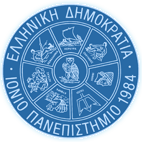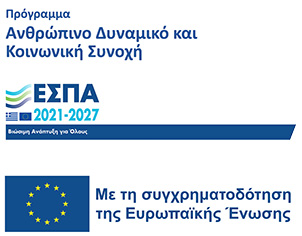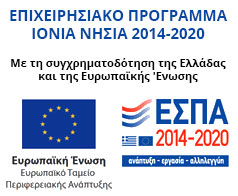Πρόγραμμα: Co-funding of regional, national and international programmes
Θεματική ενότητα: Όλες οι θεματικές ενότητες
Αρμόδιος Φορέας: Horizon 2020, Marie Skłodowska-Curie Actions
Περιγραφή:
Topic Description
Objective:The COFUND scheme aims to stimulate regional, national or international programmes to foster excellence in researchers' training, mobility and career development, spreading the best practices of Marie Skłodowska-Curie actions.
This will be achieved by co-funding new or existing regional, national, and international programmes to open up to, and provide for, international, intersectoral and interdisciplinary research training, as well as transnational and cross-sectoral mobility of researchers at all stages of their career.
Scope:Each proposal funded under the COFUND scheme shall have a sole beneficiary that will be responsible for the availability of the necessary matching funds to execute the proposal.
Applicants submit multi-annual proposals for new or existing doctoral programmes or fellowship programmes which are expected to have an impact on enhancing research- and innovation related human resources on regional, national or international level.
Applicants having benefited from COFUND under previous calls (under Seventh Framework Programme or under Horizon 2020) will explain how their proposal adds value in relation to previous grant(s).
Researchers supported under this scheme shall comply with the mobility rules of the Marie Skłodowska-Curie actions.
Limitations regarding the researchers' origin and destination should be avoided. Support cannot be awarded to researchers who are already permanently employed by the organisation hosting them.
Proposed programmes are encouraged to cover all research disciplines ("bottom-up"), but can also focus on specific disciplines. In this case the range of covered disciplines should allow reasonable flexibility for the researchers.
Programmes that prioritise specific research disciplines based on national or regional Research and Innovation Strategies for Smart Specialisation (RIS3 strategies) can also be supported. Synergies with the European Structural & Investment Funds (ESIF) are encouraged.
COFUND takes the form of:
A) Doctoral programmes
Doctoral programmes address the development and broadening of the research competencies of early-stage researchers. The training follows the EU Principles on Innovative Doctoral Training. Collaboration with a wider set of partner organisations, including from the non-academic sector, which may provide hosting or secondment opportunities or training in research or transferable skills, as well as innovative elements of the proposed programme, will be positively taken into account during the evaluations.
Each researcher must be enrolled in a doctoral programme. Attention is paid to the quality of supervision and mentoring arrangements as well as career guidance.
B) Fellowship programmes
Fellowship programmes fund individual research training and career development fellowships for experienced researchers. The programmes supported should have regular selection rounds following fixed deadlines or regular cut-off dates, allowing fair competition between the researchers applying. The selections should be based on open, widely advertised competition, with transparent international peer review and the selection of candidates on merit. Mobility types supported by fellowship programmes may be similar to the ones supported under Marie Skłodowska-Curie Individual Fellowships. On top of transnational mobility, applicants are encouraged to include elements of cross-sectoral mobility into their programmes. Fellowship programmes should be based on individual-driven mobility, i.e., researchers should be able to freely choose a research topic and the appropriate organisation to host them, fitting their individual needs.
Given that the aim of the co-funded fellowship programmes is the support of individual fellows, research teams will not be funded.
Expected Impact:At researcher level:
- Increased set of skills, both research-related and transferable ones, leading to improved employability and career prospects both in and outside academia (leading in the longer-term to more successful careers)
- Increase in higher impact R&I output, more knowledge and ideas converted into products and services
- Greater contribution to the knowledge-based economy and society
At organisation level:
- Development of high quality human resources
- Boosting R&I capacity among participating organisations
- Enhanced cooperation and transfer of knowledge between sectors and disciplines
- Strengthening of international and intersectoral collaborative networks
At system level:
- Aligning of practices and policies in the context of the EU Human Resources Strategy for Researchers, enhanced implementation of the European Charter and Code and the EU Principles for Innovative Doctoral Training at regional, national or international level
- Increase in international, interdisciplinary and intersectoral mobility of researchers in Europe
- Improvement in the working and employment conditions for researchers in Europe at all levels of their career, starting from the doctoral stage
- Strengthening of Europe's human capital base in R&I
- Increase in Europe's attractiveness as a leading destination for R&I
- Better quality R&I contributing to Europe's competitiveness and growth
Τελευταία ενημέρωση: 04-07-2016 15:20




